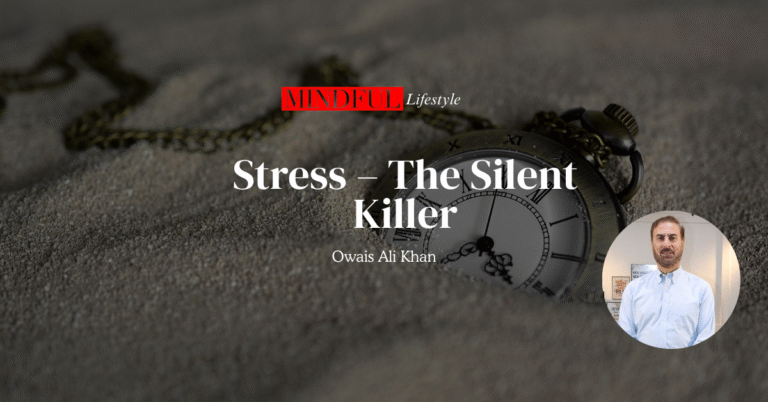In today’s fast-paced, high-pressure world, stress has become a common experience across all ages and societies. On the surface, stress may seem like a harmless part of daily life, but it attacks silently—often overlooked or underestimated. Like a submarine beneath the waves, stress creeps into our lives subtly, with the potential to wreak havoc on both our physical and mental health.

Stress is the body’s natural response to a perceived threat. In challenging situations, our body triggers the “fight or flight” response, releasing hormones like adrenaline and cortisol. This reaction is beneficial in the short term, helping us face immediate danger. However, when stress becomes chronic, these reactions start to work against our health.
Chronic stress can manifest in many ways: physical symptoms like high blood pressure, heart problems, digestive issues, headaches, fatigue, muscle tension, and appetite changes; emotional symptoms such as anxiety, depression, irritability, persistent worry, sadness, and sleep disorders. These symptoms often appear without warning—earning stress the nickname “the silent killer.”
Despite its serious impact on individuals, families, and society, stress is often normalized or ignored. People are praised for enduring stress without acknowledging its toll, and this cultural attitude can discourage seeking help or adopting healthy coping mechanisms.
The good news is that stress is manageable. The first step is awareness—recognizing the signs and acknowledging stress as a real issue.
Regular physical activity releases endorphins, the body’s natural painkillers, and helps reduce cortisol levels. Whether it’s walking, yoga, gym workouts, or any movement that makes your muscles work, exercise boosts both physical and mental well-being. Aim for at least 30 minutes, four times a week.
Meditation calms the mind and has proven benefits for physical, emotional, and spiritual health. Even a simple Vipassana meditation—sitting upright with eyes closed, focusing on the breath for 10 minutes daily—can significantly reduce stress. Over 2-3 months, regular practice can transform your inner state. Meditation also stimulates serotonin production, a “mood stabilizer” that relaxes and uplifts. If meditation feels difficult, guided sessions or group classes can help.
A balanced diet of vegetables, meats, salads, and fruits in reasonable amounts supports overall wellness. A simple guideline is to fill your stomach one-third with air, one-third with water, and one-third with food. This helps regulate calorie intake naturally.
Adequate, uninterrupted sleep is vital for well-being. Sleep cycles between Alpha and Theta brainwave states multiple times a night, allowing restorative rest. Poor sleep—marked by restlessness and heaviness—often results from a stressed mind filled with racing thoughts. Prioritize good sleep habits to feel refreshed and mentally sharp.
Talking to friends, family, or mental health professionals can provide relief. Simply expressing your feelings and being heard can ease stress. A circle of supportive friends or like-minded people can be invaluable during difficult times.
During stressful periods, carve out extra time for yourself. Reflect on the causes of stress and possible solutions. Writing down your thoughts can bring clarity and help you process emotions.
Stress may be an inevitable part of life, but its harmful effects don’t have to be. By recognizing stress as a serious health threat and taking proactive steps, you can protect your well-being.
As the Chinese philosopher Lao Tzu said, “A journey of a thousand miles begins with a single step.”
Let’s stop glorifying stress and start prioritizing well-being. After all, our health is our most valuable asset.
The writer is a certified life coach, master reiki, angel therapist, and meditation guru. He has conducted 100’s of guided meditations, workshops and courses, and has helped heal countless individuals.
His handle on all social media platforms is @healingstation1
www.healingstation1.com



